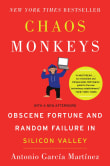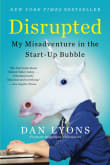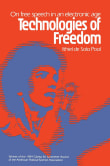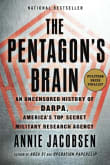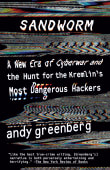Where Wizards Stay Up Late
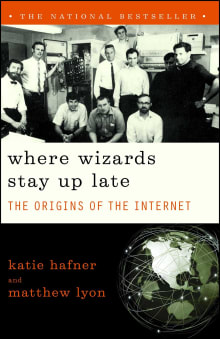
Book description
In the 1960s, when computers were regarded as giant calculators, J.C.R. Licklider at MIT saw them as the ultimate communication device. With Defence Department funds, he and a band of computer whizzes began work on a nationwide network of computers. This is an account of their daring adventure.
Why read it?
3 authors picked Where Wizards Stay Up Late as one of their favorite books. Why do they recommend it?

If you want an introduction to DARPA and how it has managed to play such an outsize role in the creation of the technologies of the future, start with this book on its best-known and most influential project, ARPANET. ARPANET went online way back in 1969, when, for the very first time, two computers of disparate types connected over a dedicated phone line to exchange data.
This book tells the story of how the project came together and how it birthed the internet, offering a book-length case study of how DARPA creates wizardry on a relative shoestring. There are lots…
From Michael's list on DARPA, America’s mad scientist agency.

This book tells the fascinating story of the visionary pioneers who created the internet. The wizards are the internet’s forefathers. They were determined visionaries and doers. In the 1960s, when computers where regarded as mere giant calculators, J.C.R. Licklider, the first director of the American Information Processing Techniques Office, saw them as the ultimate communications devices. The early internet was devised and implemented in American research units, universities, and telecommunication companies that had vision and interest in cutting-edge research. Licklider, Vint Cerf, Steve Crocker, Len Kleinrock, Larry Roberts, Robert Kahn, and David Clark articulated the vision of a "galactic" computer…
From Raphael's list on the internet's history, development, and challenges.

This superb book describes the creation of the Internet, the very network on which you’re reading these words. The key company behind its creation was a little consulting company called Bolt Beranek and Newman (BBN). It was full of smart technical people, and Hafner and Lyon paint vivid portraits of their personality traits and their working styles.
The authors also spend a lot of time describing how the network was put together, and its early growth. I like this book because the key ideas behind their work endures to this day. And this book shows the effort and energy…
From Rick's list on working in the computer industry.
Want books like Where Wizards Stay Up Late?
Our community of 12,000+ authors has personally recommended 50 books like Where Wizards Stay Up Late.

